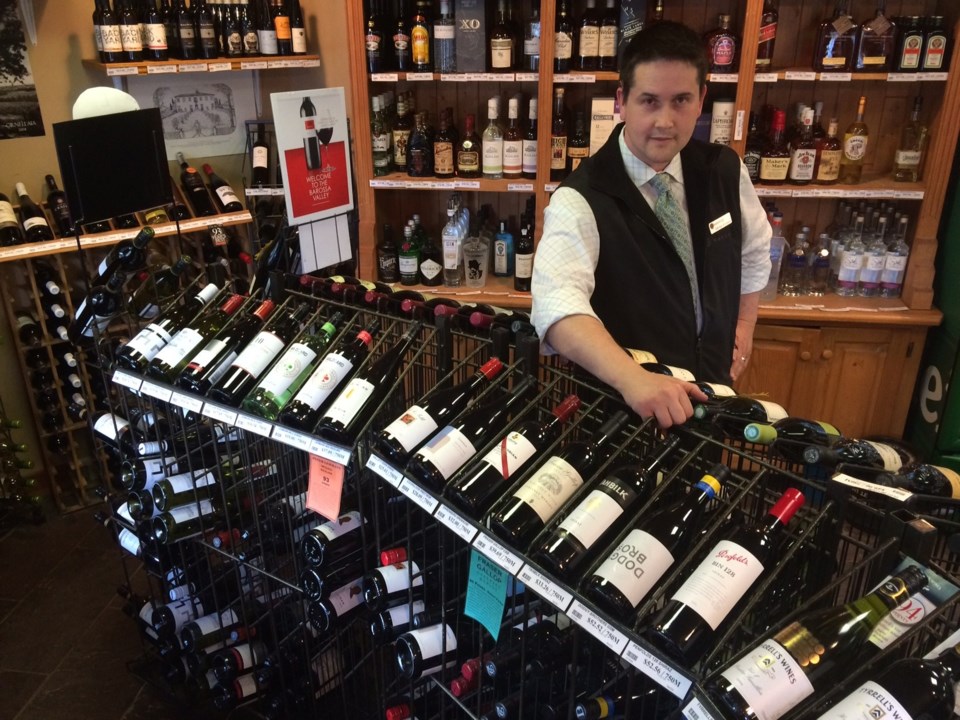With government-owned liquor stores now allowed to open on Sundays and holidays, private retailers in Whistler are feeling the impact on their bottom line.
"The government stores were open on Good Friday for the first time in the 10 years that I've been here, so our sales were obviously dramatically impacted," said Dave Brownridge, manager of the Nesters Liquor Store, where sales dropped an estimated 50 per cent compared to last year's holiday.
Sales at the Blackcomb Liquor Store in the Upper Village were also affected, with owner Michael Kompass reporting an estimated 30-per-cent dive.
The drop-off comes as a result of Victoria's efforts to "level the playing field" between private and government liquor stores, according to Attorney General Suzanne Anton, with April 1 marking the first day BC Liquor Stores could extend their daily hours and open on Sundays and holidays. The government stores are now also permitted to store beer and wine in refrigerator units.
For Kompass, it's not the decision to open seven days a week that is bothersome, but the way in which the province's first major overhaul to liquor policy in decades was ultimately rolled out.
"I have to admit, sadly, in my opinion, the execution of the changes was poorly managed and poorly communicated," he said, adding that there was an insufficient amount of consultation with the industry. "It could've been a lot easier, a lot smoother, and I think the timing could've been a lot better."
Private retailers, as well as B.C.'s restaurant and wine industry, have also cried foul over the government's updated mark-up system used to determine a new, universal wholesale price for all liquor products.
"(The government) said it was going to level the playing field, and everybody on the private side, restaurants alike, thought that was actually going to mean they were going to give us a price break on things," Brownridge said. "But they actually didn't level it whatsoever, but tilted it in their favour."
Previously, mark-ups were used to create a retail price on a bottle of wine, which was then reduced by different percentages to create various wholesale prices for different classes of retailers.
As of April 1, however, the system will have a similar set of mark-ups, although it will be used to create a universal wholesale price instead of a retail price. Resellers, including government stores, will then factor in their operating costs and profit margins to the final retail price tag.
Critics have accused the government of creating a system that is not only misleading to consumers, but one which will ultimately result in similar or higher liquor costs then before.
"It's an interesting idea on paper, and it definitely makes sense to have a single wholesale system, but the downside is that (the government is) advertising its own stores shopping at wholesale prices, which is not actually the truth," Kompass said. "The B.C. government is supplying its own stores from its own warehouse at a very specific price. Whether or not they claim they're paying wholesale, they're technically not. But I guess when you have a provincial monopoly, you can operate more or less how you please."
April 1 also marked the first day grocery stores in British Columbia could begin selling wine and liquor.
First out of the gate is the wine-on-shelves model, giving approved grocery stores the opportunity to offer B.C. VQA wines in their retail aisles.
There is also a new store-within-a-store model, which permits grocery stores to offer a full suite of alcohol products at separate, designated tills. This model will be adopted gradually, as licences begin to relocate throughout the province to other locations, and into grocery stores.
Bruce Stewart, GM of Whistler's Nesters Market, said it's too early to say whether the store will adopt the new liquor retail model.
"The short answer is we're really unsure about exactly how the changes are going to look," he said. "Without having read everything that's come down the pipe, the uncertainty is around what the costs are going to be, what the margin is going to be.
"The main goal here is that we want to do what's convenient and best for our customer, so regardless of what the limits or regulations may or may not be, if we can potentially bring something in that's good for our customer, then it makes sense."
For more information on all of the B.C. government's recent changes to liquor policy, visit www.engage.gov.bc.ca/liquorpolicyreview.




